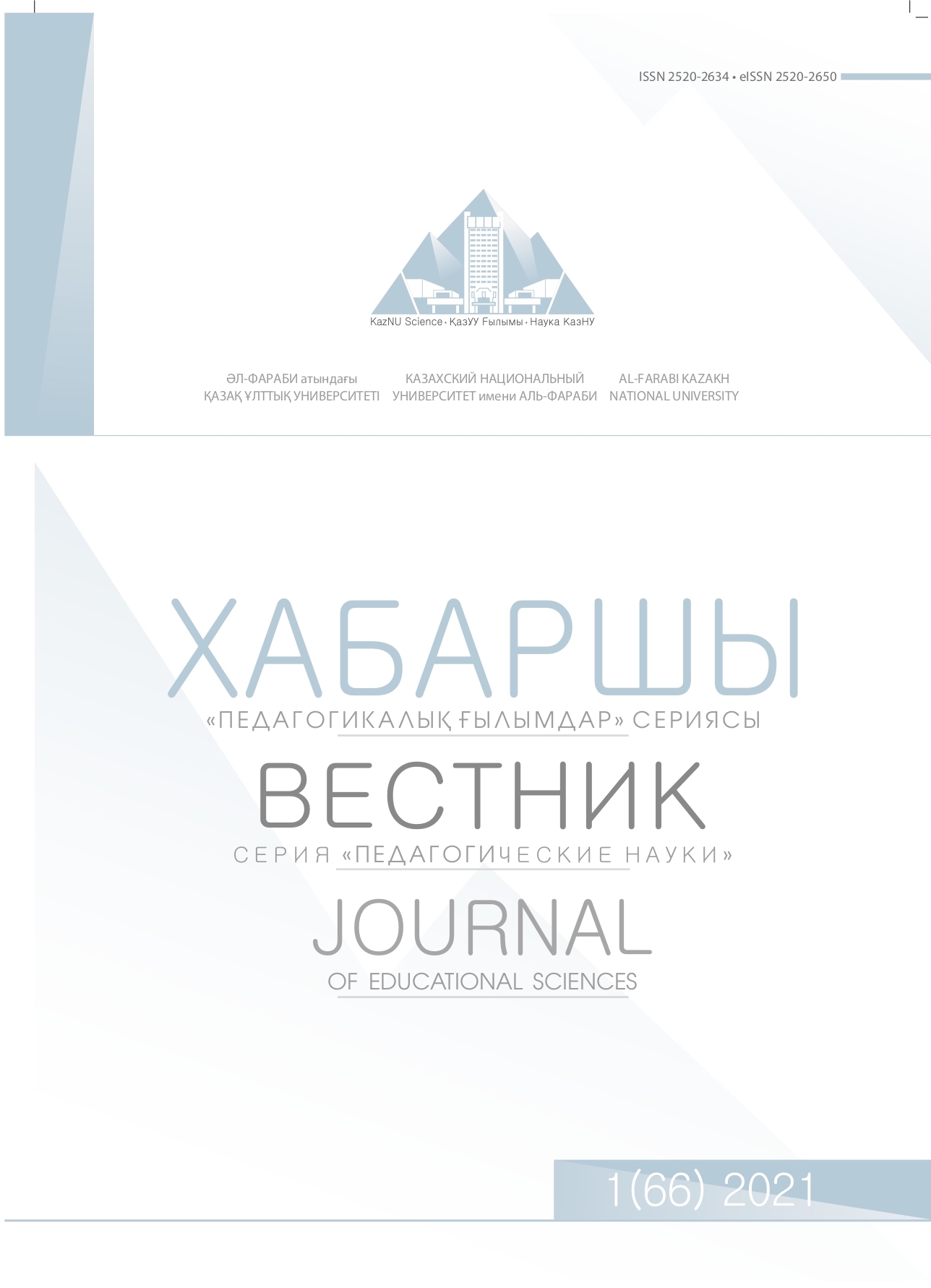Reflexive Teaching: Аnalysis of the Methodological System of Self-cognition Textbooks in 8-12 Classes
DOI:
https://doi.org/10.26577/JES.2021.v66.i1.010Abstract
The article analyzes the methodological system of textbooks “Self- cognition” of senior classes and offers a strategy of reflective teaching. The history of textbooks, changes in the functions of textbooks as the core of the methodological system of teaching a subject are briefly analyzed. Three levels of the methodological system of the subject are conditionally distinguished: the macro level – a holistic un- derstanding of the concept of the subject, the meso level – the structuring of the content of the subject, curriculum and textbooks by grade (vectors of horizontal slices), as well as the continuity of modules / sections of the program from class to class (vertical slices). These sections help to trace the horizontal and vertical continuity of the methodological system of the subject and textbooks. At the micro level – a methodology for teaching each value of the subject of self-cognition. The levels of the methodological system of the subject can be designed for understanding the methodological system of textbooks. Sum- marized in the table topics of the textbooks of grades 8-12, which illustrates the continuity of the sections of the subject. The article reflects the results of an experimental and pedagogical research on improving the practice of reflective teaching and teaching methods for schoolchildren. For this, a 5-step textbook analysis technique and a checklist technique were used. 107 students of advanced training of teachers of the subject “Self-cognition” took part in the experimental work.
Key words: reflective teaching, self-knowledge, methodological system, textbook.















